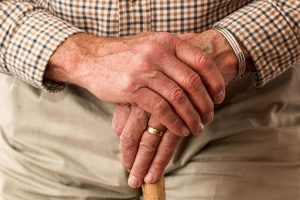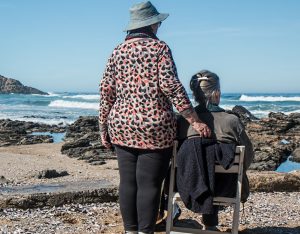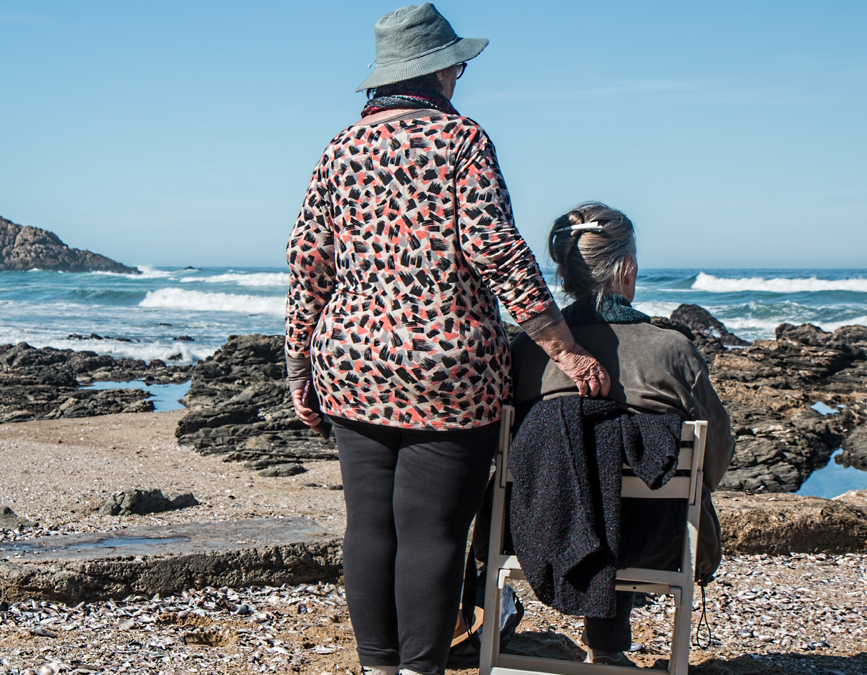Aging & Death
 As of late, more and more headlines suggest a clear and concise connection between “the elderly” and death. Aging and death are not synonyms. Yes, both happen to us, although not always in a logical and linear order. Just yesterday morning, I sat in the back tea room of our home, opened the New York Times newspaper as I do most mornings and discovered a special edition on “the elderly in Japan.” Here is an 8-page layout on living conditions in public housing communities that sprawl across Japan. Once vital centers of communities, lively in the 1960s, people describe them now as hosting magots, mounds of piling garbage, and incense burning in the smell of urine and bodies decomposing. Grand. Just what I want to become. Elderly. Really? Well, if this is how elderhood is described, why would anyone opt for this. One man interviewed in the story shared his sentiments: “How we die is a mirror of how we live.” This is not an isolated thought, rather it runs deep in our individualistic society. This ideology is deeply entrenched in our understandings of aging.
As of late, more and more headlines suggest a clear and concise connection between “the elderly” and death. Aging and death are not synonyms. Yes, both happen to us, although not always in a logical and linear order. Just yesterday morning, I sat in the back tea room of our home, opened the New York Times newspaper as I do most mornings and discovered a special edition on “the elderly in Japan.” Here is an 8-page layout on living conditions in public housing communities that sprawl across Japan. Once vital centers of communities, lively in the 1960s, people describe them now as hosting magots, mounds of piling garbage, and incense burning in the smell of urine and bodies decomposing. Grand. Just what I want to become. Elderly. Really? Well, if this is how elderhood is described, why would anyone opt for this. One man interviewed in the story shared his sentiments: “How we die is a mirror of how we live.” This is not an isolated thought, rather it runs deep in our individualistic society. This ideology is deeply entrenched in our understandings of aging.
Time and time again, the two processes are intertwined, so much so that the latter informs the former. Our concepts of death define how we internalize the aging process and how we view others aging. Indeed, I do believe the two deserve attention, only independent of one another. Our culture gravely misses the mark on such separation. We promote a denial of death. A medicalization of death. We view death as a failure. Death as a loss. Death is the enemy. However, I come from the perspective that this is not the only lens through which to view death. In the U.S., death is dark. Jeepers. We wear black to funerals. Come on.
Another perspective constructs death as the beginning, rather than the end. Another view is that death is a continuation. To be continued as life. “Death is not extinguishing the light, it is putting out the lamp because dawn has come,” suggests Indian poet Rabindranath Tagore. What would it take for the United States to fully embrace such a paradigm shift? For example, when a person is born at one of the local hospitals, “Twinkle Twinkle Little Star” is played over the intercom and can be heard throughout the entire hospital. Want to take a guess and what song is played when someone dies? That’s right. Nothing. No song is played. Silence. What if instead of nothing, a part of the ballad “You Light Up My Life” was played. Or ABBA’s “Hasta Mañana,” Judy Garland singing “Over the Rainbow” or perhaps Eddie Money’s “Two Tickets to Paradise.” Please, anything other than nothing.
If we did acknowledge death, how might this alter our perceptions of life? Yes, feelings about death are wrapped up in a cloak of fear and are rampant in our culture. “Even the wise fear death. Life clings to life,” remarked Buddha. Yes, I get that many people are afraid of a process of which we know so little about. There are far too many aspect about life we know so little about and so why live a life in the hinterlands. It is a guarantee that we will all get to the hinterland. The how and when is another matter. How do you benefit now from spending energy on worrying about the how and when aspects? Why is it that we cling to damaging ideological constraints of aging as death? How does this serve us if in shaping our ideas about aging, we then intertwine ideas about mortality?
For some, a discussion of death, even bordering on obsession with death, perhaps serves to protect the living. It is yet another way to separate us from them. As is commonly understood in the line of hospice care: They are dying. I am not. Early in my career I recall the first time a nurse remarked to me, “Well, you know she’s dying.” To which I responded, “Aren’t we all from the moment we are born?” She quickly cut her eyes toward me and huffed, “You know what I mean.” I smiled  suggesting agreement, although I didn’t know precisely what she meant. And I still don’t. This was almost twenty years ago, when I was first starting out in the field of counseling and took a lot in, rather than ask any questions. And now, I inquire on people’s meaning of this any time such a remark is made. Sometimes, I’ll throw in the question, “If she’s in the process of dying, isn’t she also in the process of living?”
suggesting agreement, although I didn’t know precisely what she meant. And I still don’t. This was almost twenty years ago, when I was first starting out in the field of counseling and took a lot in, rather than ask any questions. And now, I inquire on people’s meaning of this any time such a remark is made. Sometimes, I’ll throw in the question, “If she’s in the process of dying, isn’t she also in the process of living?”
And so, I invite you next time you are in a situation where “someone is dying” share with others an appreciation for their life. Compliment the person who is living or share with them how they impact you – maybe lessons you’ve learned or directions in life you have taken as a direct influence of the person. Be present. Enjoy every moment of life. Death will arrive. And then, you can be present with death.
Adrienne Ione is a cognitive behavioral therapist and personal trainer who integrates these fields in support of people thriving across the lifespan. As a pro-aging advocate, she specializes in the self-compassion of dementia.
Website: yes2aging.com
Guided Meditations: insighttimer.com/adrienneIone
Facebook: silverliningsintegrativehealth

